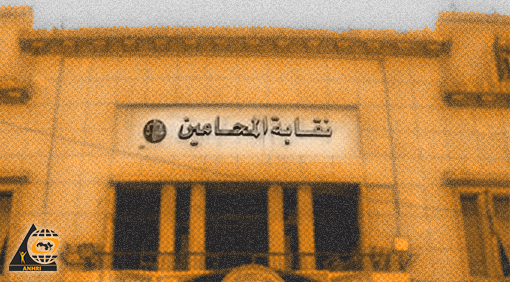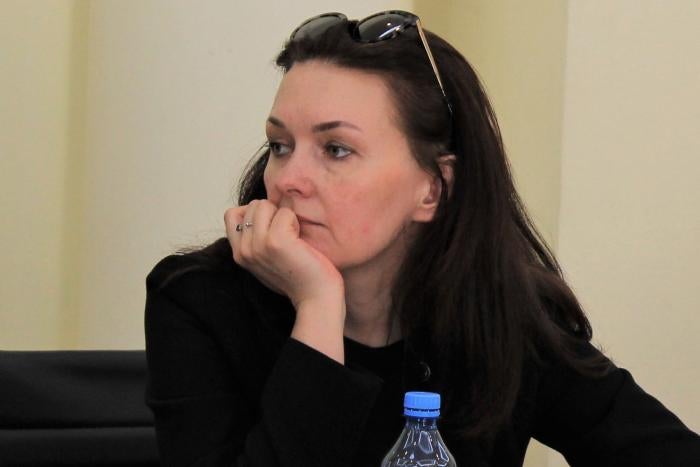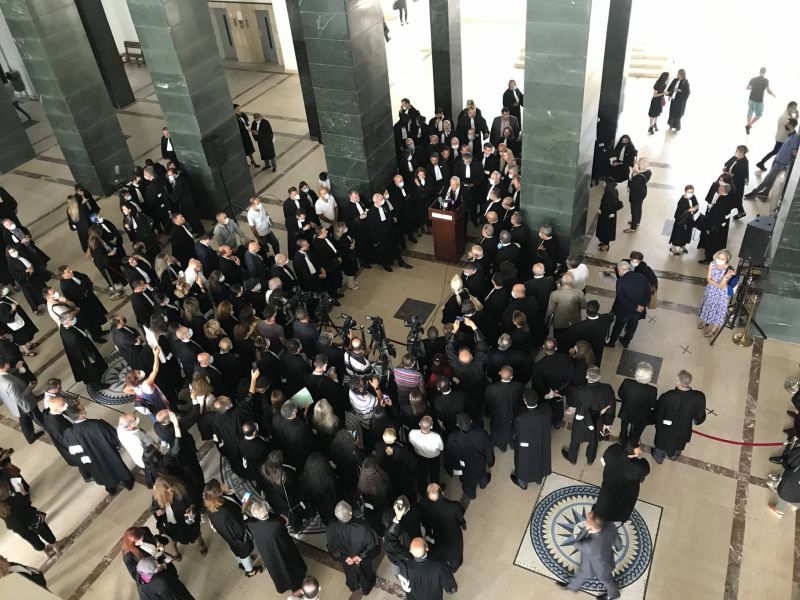13/07/21

Earlier this AM our #Myanmar law students told @JURISTnews that Mandalay U. law student Theint Sandi Soe has been sentenced to 3 years imprisonment by a junta judge at the prison in Mogok. She is the first law student sentenced during the military coup. #WhatsHappeningInMyanmar https://t.co/mNq13P4RXm
— Bernard Hibbitts (@bernardhibbitts) July 13, 2021
Theint Sandi Soe was sentenced along with her mother. They had refused to cooperate with authorities at their prison trial, saying their detention was unjust. They were taken as hostages last month when junta agents came for Theint's father, who was not home.
— Bernard Hibbitts (@bernardhibbitts) July 13, 2021
Theint Sandi Soe's father, still sought by the junta, has told @JURISTnews that his daughter and her mother will be sent to O-Bo prison in Mandalay to begin their incarceration.
— Bernard Hibbitts (@bernardhibbitts) July 13, 2021
#Moegok Protest Leader U Soe Htay's wife and his daughter Ma Theint Sandi Soe were sentenced 3 yrs in prison in today hearing. They were detained as hostage for U Soe Htay since June.
— Hane Latt_29 (@MannyMontana29) July 13, 2021
Ma Theint Sandi Soe was not in good health and didn't get treatment. #WhatsHappeningInMyanmar pic.twitter.com/wDvioPl3ep
AAPP DAILY UPDATE (13/07)
— AAPP (Burma) (@aapp_burma) July 13, 2021
906 killed by this junta
6676 total arrested since coup
5239 currently detained/sentenced
1963 evading arrest warrant
brief https://t.co/D6gM58QkFS
detained https://t.co/e8Ab0WbcRu
fatalities https://t.co/1NJvUu7cW3
releases https://t.co/ya0iO5dKlQ pic.twitter.com/z7RAYgvwIr
Father says he is worried about health of detained daughter
https://www.rfa.org/english/news/myanmar/stress-07082021183938.html
https://abaruleoflaw.blogspot.com/2021/07/aba-president-patricia-refo-released.html







